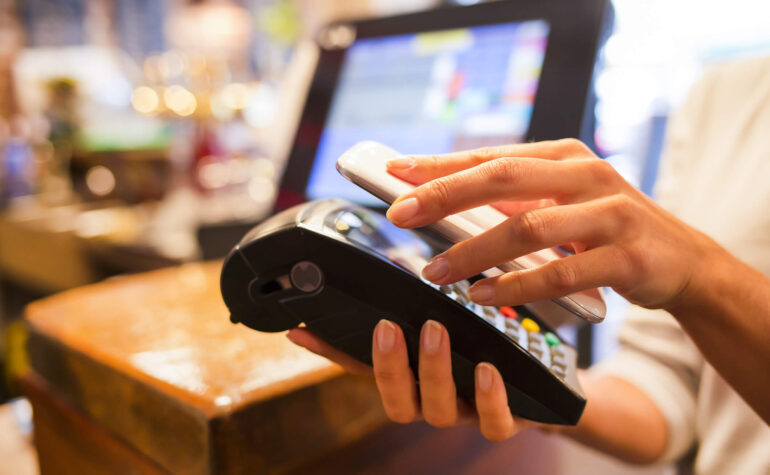Best Credit Card Processing Solutions Tailored for Every Industry

By admin September 14, 2024
In today’s digital age, mobile payment processing has become an essential tool for merchants looking to streamline their payment systems and enhance customer experience. With the rise of smartphones and the increasing popularity of mobile wallets, businesses are recognizing the benefits of adopting mobile payment solutions.
This article will delve into the advantages of mobile payment processing for merchants, exploring how it can boost sales and revenue, enhance security, optimize customer experience, and integrate with existing business systems. Additionally, we will provide a step-by-step guide on setting up mobile payment for merchants, ensuring a smooth transition into this innovative payment method.
Understanding the Advantages of Mobile Payment Processing
Mobile payment processing offers numerous advantages for merchants, making it a valuable addition to any business. One of the primary benefits is the convenience it provides to both merchants and customers. With mobile payment processing, customers can make purchases using their smartphones, eliminating the need for physical cash or credit cards. This convenience leads to faster transactions, shorter queues, and improved customer satisfaction.
Furthermore, mobile payment processing allows merchants to accept payments anytime, anywhere. Whether it’s at a physical store, a pop-up shop, or an online platform, mobile payment solutions enable businesses to accept payments on the go. This flexibility not only expands the reach of merchants but also opens up new opportunities for sales and revenue generation.
How Mobile Payment Processing Can Boost Sales and Revenue
Mobile payment processing has the potential to significantly boost sales and revenue for merchants. By offering customers a convenient and seamless payment experience, businesses can attract more customers and increase their chances of making a sale. According to a study conducted by Statista, the global mobile payment transaction value is projected to reach a staggering $4.7 trillion by 2023, highlighting the immense growth potential of this payment method.
Moreover, mobile payment processing enables merchants to tap into the growing trend of impulse buying. With the ease of making payments through mobile wallets, customers are more likely to make spontaneous purchases, leading to increased sales for businesses. Additionally, mobile payment solutions often offer loyalty programs and discounts, incentivizing customers to choose a particular merchant over others.
Exploring the Security Features of Mobile Payment Processing

Security is a top concern for both merchants and customers when it comes to payment processing. Fortunately, mobile payment processing offers robust security features that protect sensitive customer information and minimize the risk of fraud. One of the key security features is tokenization, which replaces sensitive card data with a unique token. This ensures that even if the token is intercepted, it cannot be used to make fraudulent transactions.
Furthermore, mobile payment solutions often incorporate biometric authentication, such as fingerprint or facial recognition, adding an extra layer of security. These authentication methods make it nearly impossible for unauthorized individuals to access a customer’s mobile wallet and make fraudulent transactions.
Choosing the Right Mobile Payment Processing Solution for Your Business
When selecting a mobile payment processing solution for your business, it’s crucial to consider several factors. Firstly, compatibility with your existing hardware and software systems is essential. Ensure that the solution integrates seamlessly with your point-of-sale (POS) system, e-commerce platform, and any other relevant systems.
Secondly, evaluate the fees associated with the mobile payment processing solution. Different providers may have varying fee structures, including transaction fees, monthly fees, and setup fees. It’s important to understand these costs and compare them to the benefits and features offered by each provider.
Additionally, consider the level of customer support provided by the mobile payment processing solution. In case of any issues or technical difficulties, having reliable customer support can make a significant difference in resolving problems quickly and minimizing disruptions to your business operations.
Step-by-Step Guide: Setting Up Mobile Payment Processing for Merchants
Setting up mobile payment solution for merchants involves several steps to ensure a smooth transition into this innovative payment method. Here is a step-by-step guide to help you get started:
- Research and choose a mobile payment processing provider: Start by researching different mobile payment solution providers and comparing their features, fees, and customer reviews. Choose a provider that aligns with your business needs and goals.
- Create an account: Once you have selected a provider, create an account with them. This typically involves providing your business information, such as your company name, address, and contact details.
- Integrate with your existing systems: If you have an existing POS system or e-commerce platform, ensure that the mobile payment solution integrates seamlessly with these systems. This will allow for a smooth flow of data and transactions.
- Set up hardware and software: Depending on the provider, you may need to set up specific hardware, such as card readers or mobile POS devices. Follow the instructions provided by the provider to set up the necessary hardware and software components.
- Test the system: Before fully implementing mobile payment processing, conduct thorough testing to ensure that everything is functioning correctly. Test various payment scenarios, including different payment methods and transaction types, to ensure a seamless customer experience.
- Train your staff: Once the system is set up and tested, train your staff on how to use the mobile payment solution. Ensure that they are familiar with the features, functionalities, and troubleshooting procedures.
- Promote mobile payment options: Inform your customers about the availability of mobile payment options. Display signage at your physical store, update your website and social media platforms, and include mobile payment options in your marketing materials.
- Monitor and optimize: Continuously monitor the performance of your mobile payment processing system and gather feedback from customers. Use this data to identify areas for improvement and optimize the customer experience.
Optimizing Customer Experience with Mobile Payment Processing
Mobile payment processing offers numerous opportunities for merchants to optimize the customer experience. One of the key advantages is the speed and convenience it provides. Customers can make payments quickly and easily using their smartphones, eliminating the need to carry physical wallets or search for cash or credit cards. This streamlined process enhances customer satisfaction and encourages repeat business.
Additionally, mobile payment solutions often offer features such as digital receipts and loyalty programs, further enhancing the customer experience. Digital receipts eliminate the need for paper receipts, reducing clutter and making it easier for customers to track their purchases. Loyalty programs, on the other hand, incentivize customers to choose a particular merchant by offering rewards, discounts, or exclusive offers.
Integrating Mobile Payment Processing with Existing Business Systems
Integrating mobile payment processing with existing business systems is crucial for a seamless payment experience. Whether you have a physical store or an online platform, integrating mobile payment solutions with your existing systems ensures that data flows smoothly and transactions are processed efficiently.
For physical stores, integrating mobile payment processing with your POS system is essential. This integration allows for real-time inventory management, accurate sales reporting, and streamlined transaction processing. It also enables you to accept various payment methods, including mobile wallets, credit cards, and contactless payments.
For online platforms, integrating mobile payment processing with your e-commerce platform is equally important. This integration ensures that customers can make payments seamlessly without being redirected to external payment gateways. It also enables you to offer a wide range of payment options, including mobile wallets, credit cards, and digital wallets.
FAQs
Q.1: What is mobile payment processing?
Mobile payment processing refers to the ability to accept payments through mobile devices, such as smartphones or tablets. It allows customers to make purchases using mobile wallets or other mobile payment apps.
Q.2: Are mobile payments secure?
Yes, mobile payment processing offers robust security features, such as tokenization and biometric authentication, to protect sensitive customer information and minimize the risk of fraud.
Q.3: Can mobile payment processing boost sales?
Yes, mobile payment processing can significantly boost sales by offering customers a convenient and seamless payment experience. It also taps into the growing trend of impulse buying and often includes loyalty programs and discounts to incentivize customers.
Q.4: How do I choose the right mobile payment processing solution for my business?
When choosing a mobile payment processing solution, consider factors such as compatibility with your existing systems, fees, and customer support. Research different providers, compare their features and costs, and read customer reviews to make an informed decision.
Conclusion
Mobile payment processing has revolutionized the way merchants accept payments and interact with customers. The convenience, security, and flexibility offered by mobile payment solutions make them an invaluable tool for businesses looking to enhance their payment systems and boost sales.
By understanding the advantages of mobile payment processing, choosing the right solution, and following a step-by-step guide, merchants can seamlessly integrate this innovative payment method into their operations. With the continued growth of mobile payments, it is essential for businesses to adapt and embrace this technology to stay competitive in today’s digital landscape.
